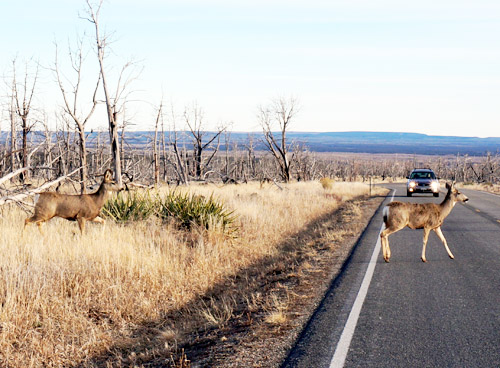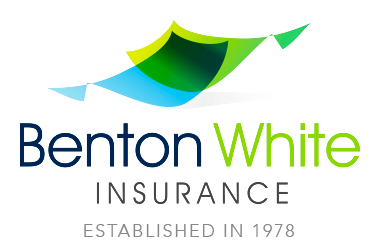The latest insurance data show that the risk of hitting a deer with your car has not changed much from a year ago. But the cost of repairing your car, if you’re unlucky enough to strike one, is on the rise. Some insurance company statistics show that the chance of a driver hitting a deer is one in 169 nationally, about the same as in 2014. 

There is, however, significant regional variation. Motorists should take special care when driving through West Virginia, for instance, where the chance of hitting a deer is one in 44 drivers. Odds are also high in Montana, Iowa, Pennsylvania and South Dakota. Even though we don’t have official data for this blog, our assumption is that Tennessee can’t be too far behind.
The compilation of these reports originates from a company making projections for the industry as a whole based on its own claims records and uses data on state licensed-driver counts from the Federal Highway Administration. The analysis is based on claims filed from July 1, 2014, to June 30, 2015, in all states and the District of Columbia. Nearly 1.3 million claims were filed industry-wide. The numbers include claims from hitting elk and moose, as well as deer.
If you hit a deer, the damage to your car typically is covered under the “comprehensive” portion of your auto insurance policy. That is the part of your policy that covers fire, smoke, theft, water damage & window breakage – generally, damage caused by anything other than a collision with another car or an object (like a utility pole). You will usually have a deductible that you pay before the insurance policy pays out.
Comprehensive coverage, however, is often optional. If you have not bought such coverage for your car, you will probably pay for repairs out of pocket and that can get expensive.
The national cost per claim from hitting a deer rose 6 percent to more than $4,100 from about $3,900 in 2014. One factor in the increase is the rising costs for auto body repairs.
Here are some questions and answers about insurance and hitting deer:
Will filing a claim after hitting a deer raise my insurance premium?
Since deer accident claims are generally filed under your policy’s comprehensive coverage, where there is usually no fault assigned, they are less likely to result in a rate increase, said Loretta Worters, a spokeswoman for the Insurance Information Institute, an industry group. But, she noted, for a deer accident to be considered a comprehensive claim, the car must have physical contact with the animal. If you, say, swerve to avoid the deer and hit a tree or another car, that would probably be filed under your policy’s collision coverage, if you carry it. That could affect your rates, depending on your insurer and the number and severity of your previous claims, she said.
Am I more likely to hit a deer at certain times of the year?
Deer are more likely to be on the move late in the year because of breeding season, according to wildlife officials, so the risk of hitting one increases in the fall. Deer accidents typically begin rising in October, peak in November and begin dropping off after December, according to the Insurance Institute for Highway Safety. Deer are also most likely to be mobile during the hours around dawn and dusk, so drivers should be alert at those times, especially in areas marked with “deer crossing” signs.
Are there any aids to help drivers avoid hitting deer?
Most deer strikes cause damage to the front of the car, according to recent research from the highway safety institute, and some auto manufacturers are said to be refining collision-warning systems to help alert drivers to deer. For now, though, “No current front crash prevention system that we know of is calibrated to recognize deer or other animals,” as stated by Russ Rader, a spokesman for the safety institute.
As mentioned above, fall in Tennessee is high-risk deer accident time. Please be vigilant as you drive – especially in areas away from the main streets as you venture down less traveled side roads where there is a lot of trees and non-developed land. Make sure you have comprehensive coverage on your auto insurance if you’re going to meet up with a deer and as I’ve said before (and it’s restated above), if you have a choice to hit the deer or avoid the deer and hit something else, HIT THE DEER!!! That keeps your record clear of an at fault accident that would be paid under your collision coverage.
We’re here to help! Let us know how we can assist you with your insurance as we strive to earn your business! Contact us by email at info@BentonWhite.com or call any of our staff at 615.377.1212. And good luck in avoiding DEER this fall!
Portions of this blog article taken from a recent New York Times report: Car Repairs From Deer Collisions Will Cost More by Ann Carrnes





